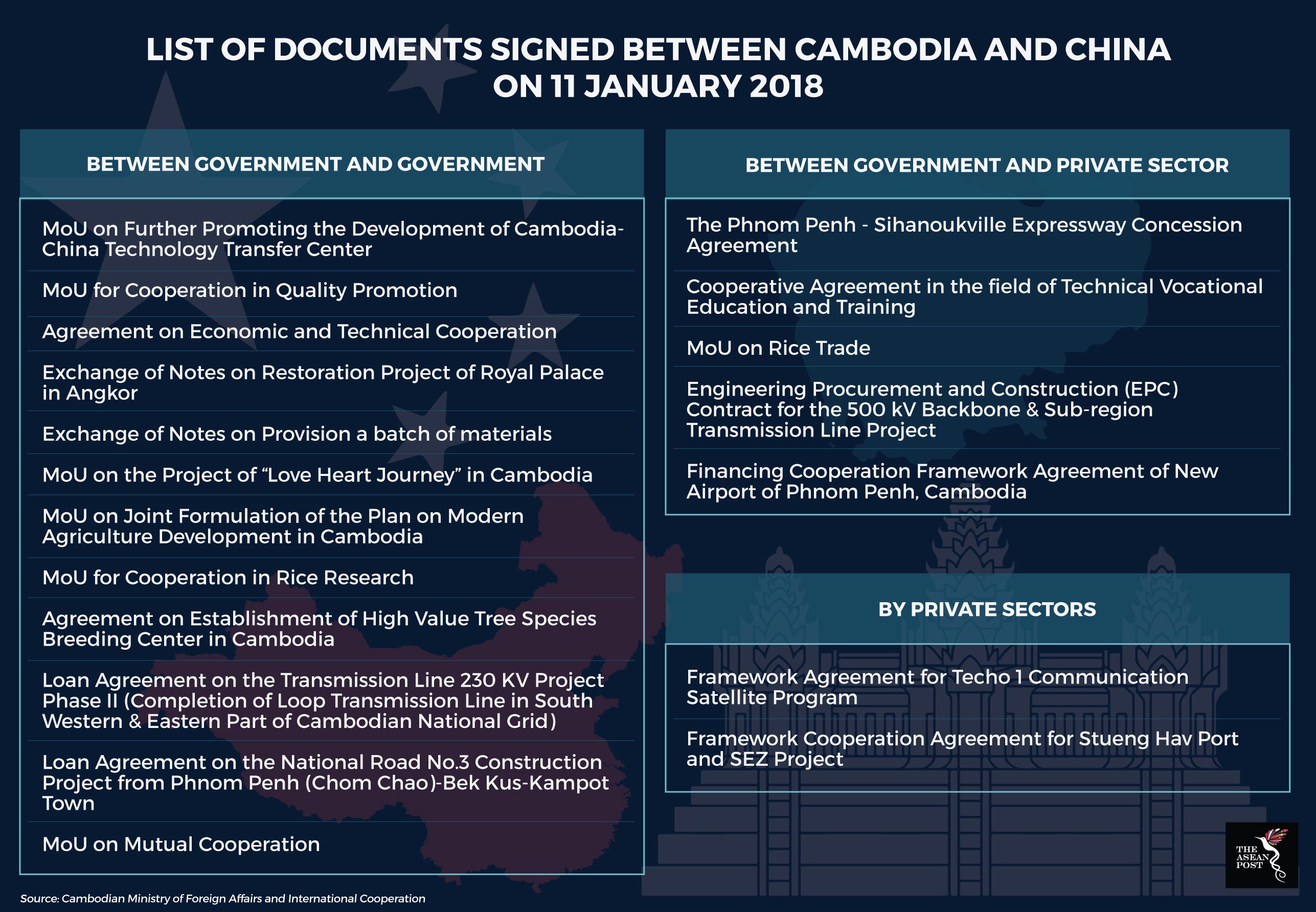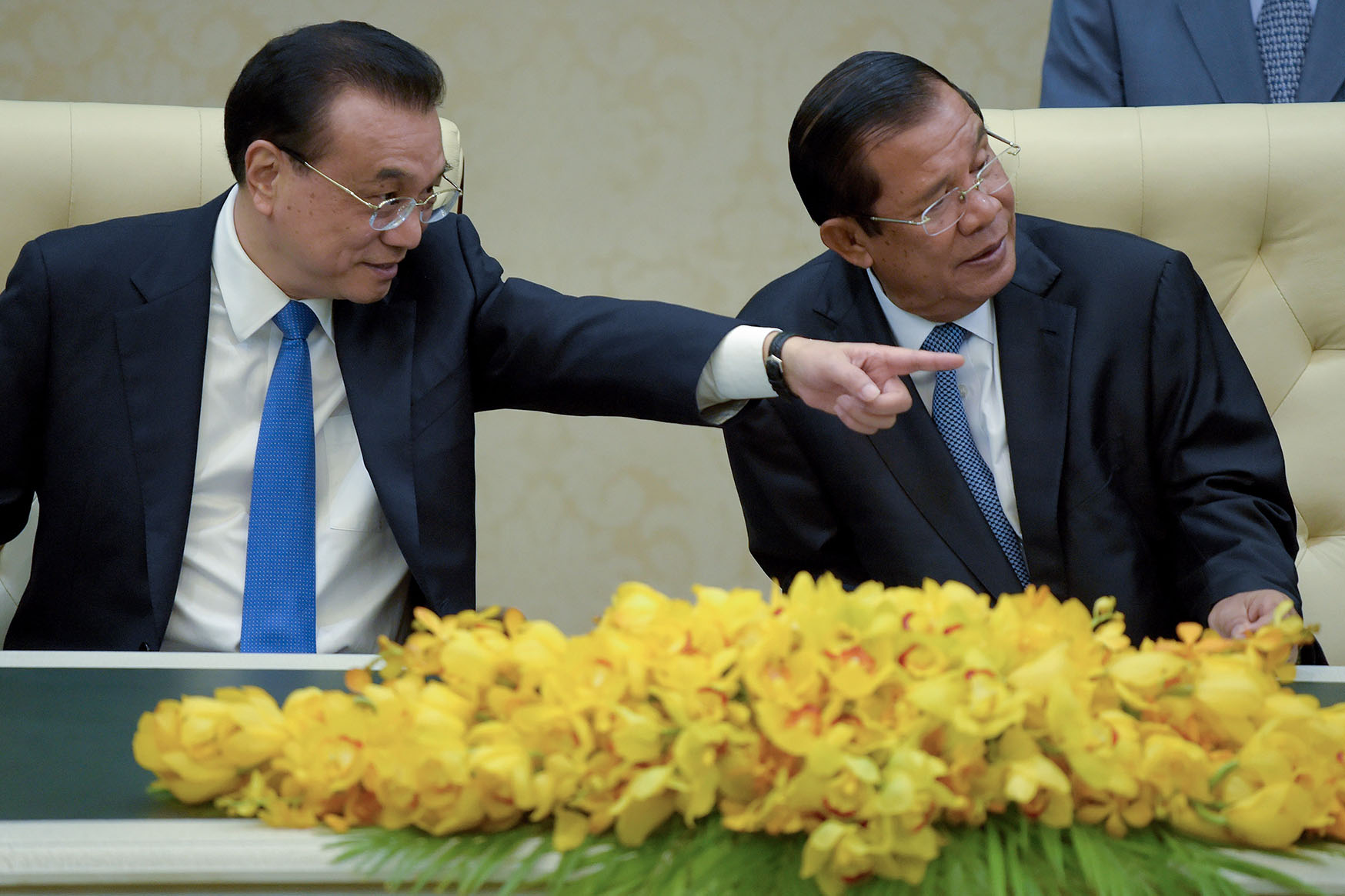2018 marks the 60th anniversary of the establishment of diplomatic ties between Cambodia and China. Chinese Premier Li Keqiang visited Cambodia in January 2018 and oversaw the signing of 19 new deals to celebrate this milestone. The deals represent an opportunity for Cambodia to build much-needed infrastructure and develop its industries to compete in regional and global markets.
In recent years, China has showered Cambodia with aid in the form of investments for the country’s development after encouragement from Prime Minister Hun Sen’s government. This situation has long triggered the golden question; is Cambodia slowly losing its sovereignty to China?
In 2017 alone, 30 percent of all investment in Cambodia came from China. It is said that China is slowly becoming a major influence on Cambodia according to The Diplomat, February 2018. However, just last Friday, the Phnom Penh Post reported that “Prime Minister Hun Sen lavished praise on China, attacking anyone who questioned the Kingdom’s relationship with its largest foreign investor, while also accusing the United States of setting up a purported espionage network through civil society organisations.”
China has exercised its imperialism over Cambodia for centuries. History states that in the 1950s and 1960s, Communist China embraced the regime of King Norodom Sihanouk and provided the Khmer Rouge with inspiration, security and economic assistance throughout their rule from 1975 to 1979.

The promises of China
According to Cambodia’s Ministry of Foreign Affairs and International Cooperation, it is listed that out of the 19 MoUs signed in January 2018, most of them account for the development of Cambodia’s infrastructure between both governments. These agreements include the MoU on Further Promoting the Development of Cambodia-China Technology Transfer Center, Loan agreement on the National Road Construction Project and MoU on Joint Formulation of the Plan on Modern Agriculture Development in Cambodia, amongst others.
Some agreements between the private and government sectors on the other hand, include a Cooperative Agreement in the field of Technical Vocational Education and Training and Financing Cooperation Framework Agreement of New Airport of Phnom Penh, Cambodia.
Other investments from private Chinese companies in the past have driven a construction boom; from mega-dams to highways and casinos targeting Chinese punters. Sihanoukville, for example, once a sleepy backpacker town, has recently emerged as Southeast Asia’s version of Macau, deemed by locals due to the glut of Chinese-operated casinos and businesses. Cambodia’s only deepwater port, has undergone a mammoth transformation thanks to an increase in Chinese investments and Chinese nationals since 2013.
No strings attached
The flood of Chinese investment has significantly cut Hun Sen's dependence on Western donors, whose aid often comes with the pressure to safeguard human rights and democratic institutions in the country. However, in the case of China, Cambodia does not have such restrictions placed on it due to a ‘no strings’ policy by the former. China offers aid while obeying the principles of not imposing any political conditions, not interfering in the internal affairs of recipient countries and fully respecting their rights to independently choose their own paths and models of development.
This ‘no strings’ support has bolstered Hun Sen’s attacks against his political critics, the media and Western democracies like the US to whom he once clung to for financial support. Cambodia is clearly committed to its new ‘guardian angel’.
While the future looks bright, there are undoubtedly underlying implications. One being the maritime territorial claims in the South China Sea, in which China is aggressively trying to advance over Southeast Asia.
“The asymmetrical relationship that Cambodia has with China does call for some careful management domestically. With Chinese presence increasing in almost all sectors of Cambodian life, it has been imperative for the government to ensure anti-Chinese sentiments from the ground do not rise beyond acceptable levels,” said Dr Terence Chong, Senior Fellow and Deputy Director of ISEAS-Yusof Ishak Institute.
Apart from Cambodia, China is seen to be exerting its influence over other Southeast Asian countries as well which contribute to its rise as a regional hero within Asia. All in all, the region’s member states, especially Cambodia, must keep an eye out for any likelihood of historical repetition as it cosies up to the Asian superpower.
Recommended stories:
